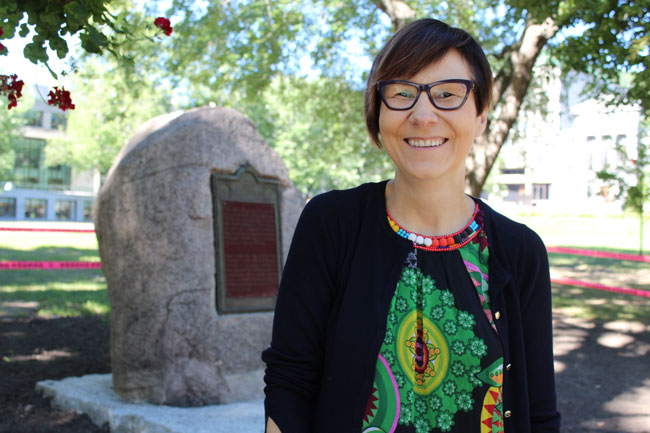Dr. Cindy Blackstock will be joining McGill’s School of Social Work starting in Sept. 2017. Dr. Blackstock is famous for her work as an advocate for indigenous children, namely during a case brought before the Canadian Human Rights Tribunal regarding equal access to child and family services for indigenous children.
Dr. Nico Trocmé, director of the School of Social Work and Philip Fisher Chair in Social Work, are pleased that Dr. Blackstock is joining the department.
“This builds on a longstanding collaboration between [Dr. Blackstock and I], from the work we have done on the overrepresentation [of] indigenous children in [the] child welfare [system, and] documented by the Canadian Incidence Study of reported Child Abuse,” Dr. Trocmé said.
As Executive Director of the First Nations Child and Family Caring Society of Canada (FNCFCS), Dr. Blackstock worked to end the Canadian government’s discrimination against First Nations children in the child care system.
“Going back decades, the federal government has provided less public funding for services like education, health care, and child welfare [for First Nations children] than all other Canadians receive […],” Dr. Blackstock said. “Depending on the program, 50 […] to 70 cents on the dollar for First Nations kids.”
In Jan. 2016, the Canadian Human Rights Tribunal recognized the FNCFCS’s claim. The Tribunal ordered the Canadian government to end the discrimination against indigenous children in the provision of government services.
“We said that failures to act on the available solutions and the perpetuation of these inequalities for children is racial discrimination, and in January 2016 the Tribunal agreed with us and ordered Canada to stop,” Dr. Blackstock said.
Since then, the Tribunal has issued two orders concerning the lack of action to end the underfunding of child and family services for indigenous children.
“We [sent] a compliance order [in April] to Canada that [notified them that] they failed to comply with the January order […] and then we have another compliance order that was issued on [Sept. 16] again because Canada failed to comply,” Dr. Blackstock said.
If the government does not respect the order, Dr. Blackstock and the FNCFCS plan on taking the issue a step further.
“We are always hoping that Canada […] complies with these orders, but if it fails to do so, then we are within our rights to file an application for contempt in federal court […] because we simply cannot allow 163,000 children to suffer,” Dr. Blackstock said.
“It’s been shown and sold out to audiences all over Eastern Canada, and this week is going to Calgary,” Dr. Blackstock said.
Dr. Blackstock is currently completing speaking engagements and will begin to teach at McGill next September. She will teach a course about advocacy and changing public policy in change-resistant environments.
“I don’t think very many people in academia actually have those skills because they’ve never learned how to actually create systemic change [….],” Dr. Blackstock said. “Without those skills, we can’t really expect people to be able to make those changes. So I want to be able to pass along what I do in 20, 30 years to another group of folks on how you change things in peaceful, respectful ways.”
According to Dr. Trocmé, in addition to the advocacy course, Dr. Blackstock will contribute to the development of an indigenous social work course–the first of its kind in the province of Quebec.
“We also are the first school in Quebec and one of the first in Canada to add a required Indigenous Social Work course to our [Bachelors of Social Work] program; [Dr. Blackstock] will play a major role in developing this course,” said Dr. Trocmé.
Moreover, Dr. Blackstock intends to seize every opportunity she has to pass on her knowledge in order to raise awareness and engage Canadians in the fight for the protection of indigenous children’s rights.
“I’m also blessed with the frequent opportunity of being in the media, both in written media and in broadcasting, and so I take whatever opportunities I have there to spread the word,” Blackstock said.
Dr. Blackstock also starred in the movie We Can’t Make the Same Mistake Twice, following the story of the tribunal case. Produced by Alanis Obomsawin, the film premiered at the Toronto International Film Festival in Sept. 2016.
Despite being one of only a few indigenous-Canadians to be hired at McGill, Dr. Blackstock remains focused on her advocacy. In her new role as a professor, she is motivated to bring the unfair treatment of indigenous children to public consciousness.
“I really do believe that our students at McGill and people in the Canadian public more generally would be appalled if they actually knew that there’s racial discrimination that is going on and would stand up against it,” Dr. Blackstock said. “But it’s been so normalized in our society that people make excuses for it or they minimize it.”







